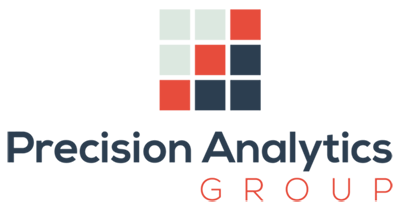Making My Mark in a Bright Analytics World (Part I)
As part of my morning ritual, I usually wake up at around 6:30am and prepare my breakfast over ESPN’s First Take. If you’re not familiar with the show, it features several high-profile sports personalities who bloviate about the major topics in sports. Generally, it’s highly entertaining and it’s a good way for me to get my blood flowing for the day. The commentary elicits either laughter or irritation depending on the nonsense being spewed that day. However, there was one episode that left me quite pensive because it really hit home.
Enter Michael Wilbon, an ESPN commentator, former sportswriter and columnist for The Washington Post. He wrote a somewhat controversial column titled “Mission Impossible: African Americans & Analytics.” Essentially, this article had an underlying theme suggesting that African Americans didn’t really care about analytics thus they were getting snubbed because of this “fact”. There was a lot of spirited conversation about the article, which led to a significant backlash. I have to admit that I was annoyed, but why? Was it because I felt like I was being attacked directly as a black man? Was it because I am a black man in the analytics world? I felt both. However, considering Wilbon is black as well, I wanted dive deeper into some of the facts that might have driven him to write a piece like this rather than just react. Spoken like a true analytics geek, right?
Numbers Don’t Lie
According to recent estimates, only 3% of data and analytics professionals are Black, and only 15% of data scientists are women overall. Due to the lack of diversity, Black women are probably underrepresented in data science. These numbers are staggering, and I don’t understand why they are so low. Statistics may not tell the entire story of a use case, an action, and/or outcome, but they can definitely shed some light on why something may have happened. Data science is something that never gets old because the way of solving an analytics puzzle is never the same. Data is everywhere and it is not going away. There are always questions to be answered, problems to be solved, and data to be discovered to assist in that solving process. If you become proficient in business analytics, you will never be without a job because there will always be a need to analyze data. I am damn proud to be part of that 3%, but it was a long road to get here. Let me tell you how I did it.
Square One of the Journey
I am used to taking the lonely road to success. I was one of 14 black people (out of XXXX overall) at the high school I graduated from in Northern Virginia. Despite that fact, I managed to work hard and gain the respect of my friends and earned the title of Class President. Little did I know that this was a lifetime achievement award because I have been planning reunions for the last 30 years, but I digress. I was told by my initial guidance counselor that I was not smart enough to apply to the University of Virginia. Needless to say, that irritated my entire family. I was already a self-motivator, but this inspired me to another level. First off, we switched guidance counselors. Next, I proceeded to work exceptionally effectively and earned a full, four-year scholarship to University of Virginia and proceeded to graduate with a degree in Russian.
Okay, I know. Russian? So let me explain. I love languages. As a matter of fact, I knew three languages upon graduating college. By the time I got into my government job, I was a Windows Administrator in six different languages. I’ll get into that in the next blog. Again, I am really good with languages. Not just written and spoken languages, but also computer programming languages. The discipline needed to learn each type of language was very similar for me and it rewarded me in several ways. My love for computers is because of my father. He loved programming and he did it with glee for his job. I wanted to know more. He taught me how to code. I coded my own games and went to computer camp not because he forced me to, but because I asked to. I just had a knack for it. I loved creating my own games. I loved solving problems via code. He would give me small tasks that would help his business. I was accomplishing something. So, despite me being a Russian major, I always had computer work as a safety. I did take a programming course in college, but it wasn’t the best. Nonetheless, that did not deter me.
Getting my First Look at the Corporate World
My first job after college was as “Programmer 1” with the now-defunct Circuit City Corporate in Richmond. I was tasked with being part of the crusade to fix the Y2K problem that was going to cause the world to come to an end. I’m saying this tongue in cheek, but back then it was a real source of heartburn for many organizations. Essentially, I needed to modify any COBOL, RPG, and CL code that made reference to a year as a two-digit to a four-digit year.
Remember that 3% figure I mentioned above of Black people in the analytics force? Well, I started my analytics journey in 1996 so just imagine how much smaller that percentage actually was. I was only the black person in the office. To double down on that fact, I was the only person of color in that office. I felt a lot of pressure to succeed and maybe that was something of my own doing. Of course, I wanted to keep my job, but I felt like I needed to be exceptional not just for me, but for the next person who came after me. Almost like I was carrying the proverbial flag for my race.
Again, this was my very first job and I knew very little about being a professional in the corporate world. I just knew that I needed to work very hard to get up to speed and even harder to stay up to speed. I had some wonderful mentors who taught me not just the programming languages, but how to work as a team. How to pay attention to detail and complete coding assignments on time. How to work efficiently. My colleagues really helped me develop the foundation of my professionalism. I am forever indebted to each of them for that. As a result, for anyone who I have the pleasure of mentoring, I do a similar thing.
After a year, I wanted something a bit more challenging, and more government related so I moved back into the Washington DC area and did government contracting. I was still doing coding, but now I was doing something completely new, C++. Object-oriented programming was more interesting than the straight linear programming of COBOL and RPG. I felt the need to succeed quickly. I interviewed well and showed a propensity to learn quickly so I felt like SAIC took a chance on me. I did not want to let them down. I did not want to let myself down. I also did not want to let my people down. I’m not just talking about other black people, but everyone who vouched for me as well as the others who doubted me.
There is a term that you will see from me in my personal blogs and that’s professional fear. Professional fear, when used properly, can take your career to heights you would never believe. I use it to push myself out of my comfort zone so I can be a better professional. At this stage of my career, I was just figuring out that I had this in me. I did not know how to harness that yet.
Stay tuned for Part II of my analytics journey when I start to understand how my programming skills led to my shift to analytics.
By Chris Williams
Certified Alteryx Partner
and Tableau Desktop Specialist


